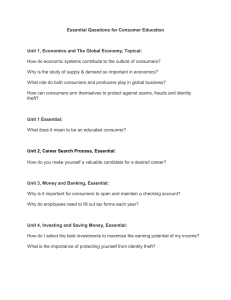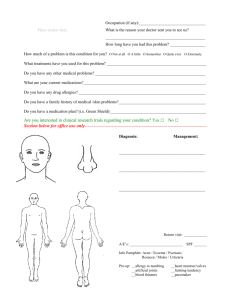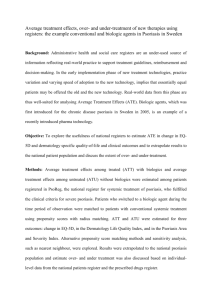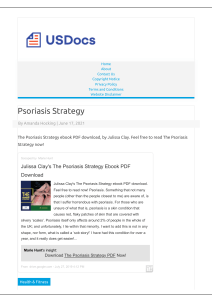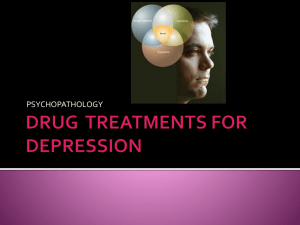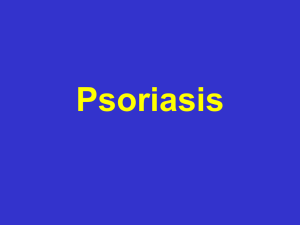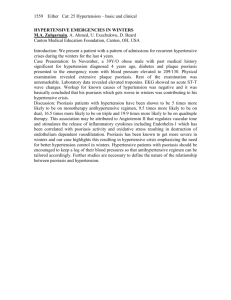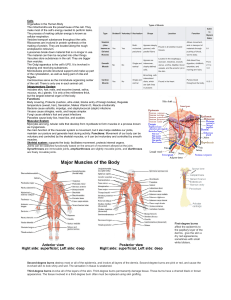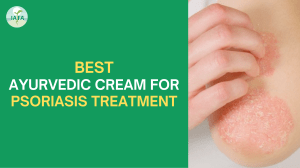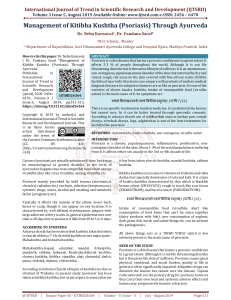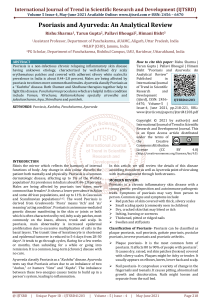Medical Exam Paper: Vitamin Deficiencies, UTI, Psoriasis, Depression
advertisement
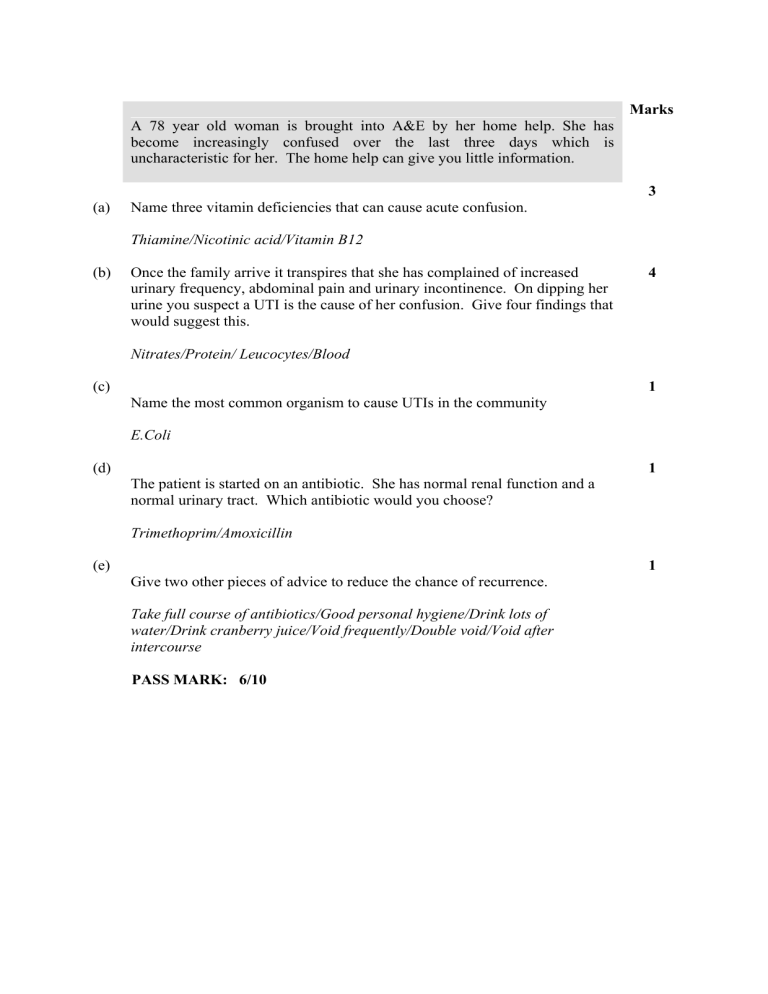
Marks A 78 year old woman is brought into A&E by her home help. She has become increasingly confused over the last three days which is uncharacteristic for her. The home help can give you little information. 3 (a) Name three vitamin deficiencies that can cause acute confusion. Thiamine/Nicotinic acid/Vitamin B12 (b) Once the family arrive it transpires that she has complained of increased urinary frequency, abdominal pain and urinary incontinence. On dipping her urine you suspect a UTI is the cause of her confusion. Give four findings that would suggest this. 4 Nitrates/Protein/ Leucocytes/Blood (c) 1 Name the most common organism to cause UTIs in the community E.Coli (d) 1 The patient is started on an antibiotic. She has normal renal function and a normal urinary tract. Which antibiotic would you choose? Trimethoprim/Amoxicillin (e) 1 Give two other pieces of advice to reduce the chance of recurrence. Take full course of antibiotics/Good personal hygiene/Drink lots of water/Drink cranberry juice/Void frequently/Double void/Void after intercourse PASS MARK: 6/10 Marks David a 16 year old boy is referred to dermatology by his GP. He has extensive red, raised oval plaques with white scaling on his scalp, knees and elbows. The plaques are itchy and he is very self conscious. You make the diagnosis of moderate classic plaque psoriasis. 3 (a) Name three other types of psoriasis Guttate/Erythrodermic/Seborrhoeic or flexural/Pustular (b) 2 A number of environmental factors can trigger an outbreak of psoriasis. Name two groups of drugs that may make psoriasis more active. Beta blockers/NSAIDs/Antimalarials (c) 2 David also complains his nails look different. Give four nail changes that may occur in psoriasis. Pitting/Onycholisis/Hyperkeratosis/Ridging/Oil spots/Discoloration (d) 2 What types of topical treatments could you start David on? Name four. Emollient/Topical Vit D analogue/ Topical retinoid/ Topical Antimitotic/ Topical steroid (e) 1 You see David frequently over the next year, his psoriasis did not respond as well as you expected and you would now class is as severe. He is very anxious and you decide on a systemic treatment. Your consultant prescribes Acitretin, an oral retinoid. Who would you not give this drug and why? Young women. This drug is teratinogenic and can be stored in body fat for 3yrs. PASS MARK: 7/10 Marks You are called out to see a 38 year old woman who has not left the house since losing her job two months ago. Her daughter tells you she has not been eating properly and has stopped washing and getting dressed. You suspect she is suffering from reactive depression. Name three other biological symptoms that would suggest depression 3 (a) Weight loss Constipation Sleep disturbance: early morning wakening/ initial insomnia/ broken sleep Diurnal variation of mood Decreased libido Amenorrhoea (b) After taking a history and examining Mrs. Park you both decide that trying an anti-depressant is the best option. Below are three classes of anti-depressant. Give an example and the most common side effect of each. 3 TCAs – amitriptyline, imipramine, dothiepin, trazedone, clomipramineanitcholinergics SEs MAOIs – phenelzine, isocarboxazid, tranylcypromine – hypertensive crisis SSRIs – fluoxetine, fluvoxamine, sertraline, paroxetine, citalopram – hyponatraemia. (c) (d) (e) Take one of the groups of anti-depressants above and describe its mode of action. TCAs – inhibit reuptake of both serotonin and noradrenaline into the presynaptic neurone so that both NTs accumulate within the synapse. MAOIs – inhibit the enzyme monoamine oxidase present in the presynaptic neurone, inhibiting the intraneuronal metabolism of monamines. Results in increased release of amine NTs into the synapse. SSRIs – highly selective serotonin reuptake inhibitors, resulting in accumulation of serotonin within the synapse with little or no effect on noradrenaline. You start Mrs. Park on fluoxetine. What would be your starting dose? 20mg OD Name two types of non-pharmacological treatment that Mrs. Park may benefit from. Cognitive therapy Psychotherapy In severe cases, ECT PASS MARK: 7/10 1 1 2
